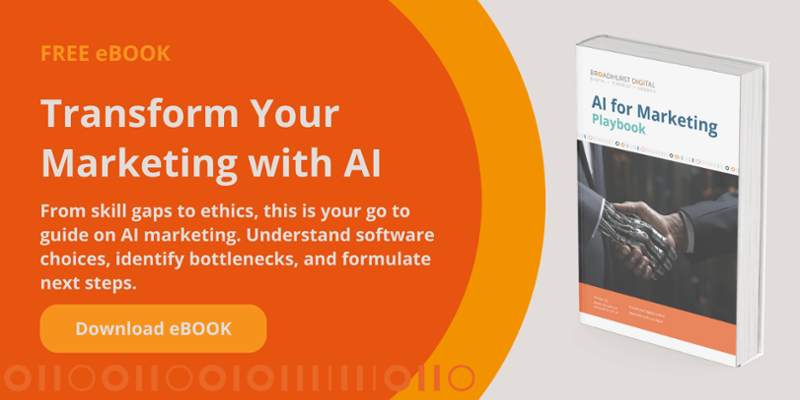Navigating the intricate interplay of ethics in Artificial Intelligence can be daunting. Yet, when I sat down with Olivia Gambelin CEO and Founder of Ethical Intelligence, for an interview on Artificially Intelligent Marketing, it became evident that she thrives in this realm.
Juggling the dual roles of an entrepreneur and an ethicist, Gambelin often finds herself as the first ethicist many encounter, and she's keen to reshape their perceptions. "They're usually surprised to hear that I am not going to sit there and split hairs with them about good and bad," she reflects. Rather than playing the part of a stern moral overseer, she positions herself as a supportive ally, working in tandem with decision-makers. Her mission? To ensure that AI strategies are in harmony with both regulatory guidelines and company-set ethical values. In essence, Gambelin serves as the conscience of the AI world, guiding its moral trajectory as it surges forward.
From Silicon Valley's Tech Hubs to Ethical AI's Frontlines
Silicon Valley, with its pulsating tech vibes and relentless drive for innovation, was the cradle that nurtured Gambelin's fascination. "The field of AI and data attracted me because it's quite an interesting mirror to our own selves, our own humanity," she reflects. This early immersion in a tech-centric environment didn't just foster an interest; it carved out a path for Gambelin, leading her to the crossroads of technology and ethics. It's within this intersection that Gambelin began observing trends and nuances in AI adoption.
The Slow Embrace of Generative AI
Contrary to popular belief, Gambelin elucidates that the business world's foray into generative AI has been more of a cautious waltz than a fervent tango. "The business perspective around generative AI is slower for in-depth adoption than it's made out to be," she notes, hinting at the chasm between hype and reality. ChatGPT and its ilk, while brimming with potential, come replete with their own challenges, especially in security and data privacy.
The EU AI Act: A Double-Edged Sword?
Navigating the intricate maze of AI ethics, Gambelin doesn't shy away from voicing her apprehensions regarding the EU AI Act. Drawing parallels with the GDPR, she expresses concern about the Act's potential ramifications on the startup ecosystem. "Post EU AI act, we're not investing in any high-risk categories," is the mantra coming from many investors she has spoken to, highlighting the chilling effect it might have on AI innovation across the EU.
Company Values: Beyond The Glossy Corporate Brochures
For many, company values may seem like mere decorative phrases, but to Olivia Gambelin, they are far more profound. She sees them as the bedrock upon which an organisation's identity and ethos are built. Her approach to distilling these values is both methodical and insightful.
Gambelin employs a "triangulation" process, a meticulous methodology that delves deep into the very fabric of a company's being. She gathers three distinct inputs:
Regulations and Policies: Here, Gambelin dives into the legal landscape of the country the company operates within. For European entities, this would entail a comprehensive exploration of directives like the EU AI Act, which serve as a compass pointing towards the region's overarching values and principles.
Industry Standards: Every industry has its unique set of values, standards, and codes. Gambelin identifies these, whether it's the inviolable Hippocratic Oath governing healthcare or the ethical codes steering the financial sector.
Company's Own Ethos: This involves a deep dive into the company's very soul. Gambelin sifts through its mission statements, brand identity, and the values it publicly champions.
With these three pillars in place, the process of triangulation begins. Gambelin meticulously analyses the data, hunting for common threads that weave through all three sources. When a value, such as "trust", resonates across the trio, it's elevated to the status of a core value — a non-negotiable principle that the company must uphold at all costs. Values that echo in two of the sources still carry weight, serving as guiding stars in the company's ethical journey.
Building Trust: The Onus on Marketers
In the sprawling edifice of AI ethics, marketers hold a pivotal position. They're not just the voice of the company but also its ears, tuning into the subtle feedback hum of the user base. "Being able to accurately represent and communicate with a user base how the company approaches Responsible AI is incredibly important," Gambelin stresses, underscoring the indelible link between effective communication and trust-building.
The Ethics Maturity Continuum: A Beacon for Companies
For firms navigating the murky waters of AI ethics, Gambelin offers the Ethics Maturity Continuum as a guiding lighthouse. Tailored to suit both fledgling startups and mammoth corporations, this continuum is designed to "help catch blind spots", ensuring that firms remain on the right ethical track.
A Glimpse into Tomorrow
As our conversation winds down, Gambelin's vision for the future shines with optimism, albeit tempered with caution. She envisions a world where the harmonious melding of AI and ethics ensures a responsible and inclusive technological landscape. And as she charts this course, one can't help but feel that with ethical stewards like Olivia Gambelin at the helm, the future of AI is in safe hands.

Comments